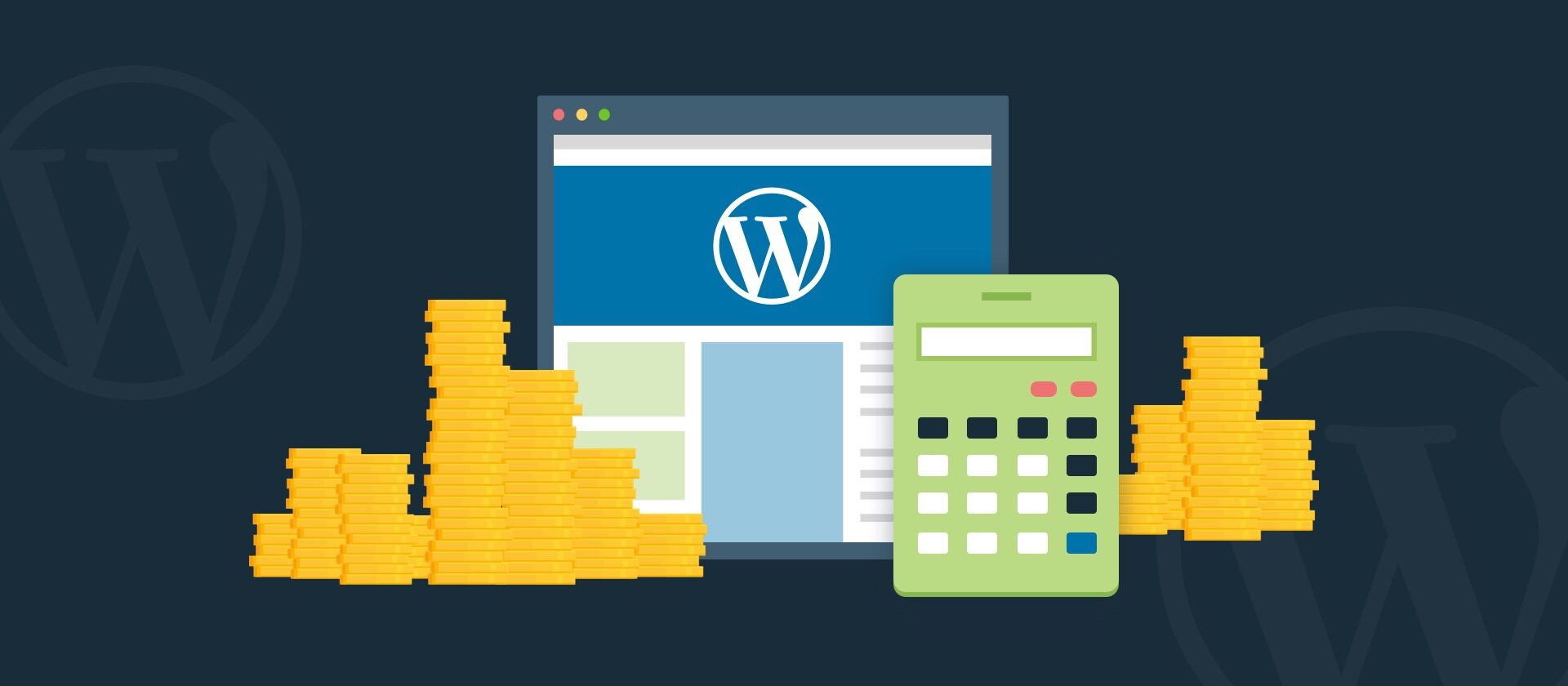There are a lot of opportunities, and anyone can create a website for free, by freelancers or any digital agency. However, if buying too cheap or choosing the wrong partner, the final product probably won’t satisfy the needs, and the risk of relaunching again increases. However, how much should a WordPress website cost? We will clarify that in this blog post.
The common law of business balance prohibits paying a little and getting a lot.
John Ruskin Common law of business balance – Wikipedia
Those who buy cheap, buy twice

The writer John Ruskin described some of the common laws in business. It’s so fundamental and so accurate that it can still be quoted today, even if he wrote it down around the 1860s.
It basically says, “you get what you pay for.” But there is a bit more to it. Ruskin describes that you take the risk of losing it all if you buy cheap ‒ because you ultimately have to buy twice if the product or solution does not fit your needs, and there is quite a probability for it because no one sells something below its value. And he says that we have to calculate that risk into the price, too. If we do so, we could buy the better solution right away and save money.
Sounds reasonable, doesn’t it?
John Ruskin 1879, authorship unknown (Hubert von Herkomer ?),
Public domain, via Wikimedia Commons
Unfortunately, it’s not that easy because we often cannot know if we are getting better quality, just because we pay more.
So, for the case of hiring a WordPress agency to create and maintain a website or an online shop, we have some tips on how to find a partner at fair prices.
Pricing methods of web development agencies
First of all: We have to look at some of the different pricing options possible for website projects. Indeed there are more, but these are our preferred models:
Fixed price project
It’s probably the most requested pricing model, as it promises security ‒ but the one with the highest risk. What sounds counterintuitive is relatively easy to understand if we think about it precisely. Fixed-price projects have an increased risk of not satisfying the clients’ needs. Usually, because time or budget is calculated at the beginning of the project, critical for different reasons. It might be because the client wants new features, which were not defined as requirements initially. Or because the agency has calculated the project too cheap to get the deal.
In general, there is nothing wrong with fixed-price jobs if the client is well-prepared and knows precisely what he needs.
To make sure fixed price projects become a success, we recommend a kick-off workshop with all stakeholders of the new website in which every little detail will be defined ‒ before making an offer.
Hourly rate project
This is probably one of the most common pricing models. In return for an hourly fee, the client gets access to the time of a freelancer, employee, or the whole team. The hourly rate can be blended, so 1 hour of an agency costs 150€ or is paid per specialist, where the client pays different prices for different levels of seniority.
What argues against this pricing model is that it just emphasizes the cost of the agency and not the value to the client.
Keep in mind that you don’t pay for just the specialist crafting your new website or make the mistake of comparing the hourly rate to your internal cost structure. You pay for the whole agency to run and access everyone’s knowledge in the project team. So even if hiring a specialist to do the same job at a cheaper rate, they would never have the collaborative strength an agency has to make a go of the project.
Retainer contracts
Retainer contracts are the perfect solution for maintenance, service, support contracts, or simply developing a project agile and grant constant access to the agency team in the future. It is a pre-negotiated and pre-paid fee for either a set amount of time or a set number of deliverables. The workload has to be estimated precisely in a forecast. Retainers work best in the long term.
Mixed pricing
This one is our favorite, as it combines the strengths of all contracts and works around their weaknesses. We don’t have to choose only one option when it comes to pricing. Instead, we can have the benefits of all options.
For example, we often encounter vague visions of the projects by prospects contacting us. Sometimes they are more detailed, sometimes they are not, and that is fine. Though, they all have in common that it is nearly impossible to think about every little detail of a website project in the early stage, even if we try. There will always be things our clients and we discover during the project. And as it’s almost impossible to make a 100% precise offer based on incomplete information, mixed pricing is always beneficial in the real world.
The best practice is to define the project scope and make a fixed price for that. Knowing that there will be efforts for things that are not in the project scope and offering an hourly rate for them. But it’s crucial that this has been defined in the beginning and the customer has the right expectations on the total price for the project. That is a fair deal for both parties.
The problem is that not everybody in the market plays a fair game. Digital Marketing and online services have a very low barrier to getting into the market. There are plenty of agencies and service providers out there that offer their solutions at very low prices and promise great results. In many cases, trust takes revenge when the bill is in the mail, and the project doesn’t meet the expectations, or the price seems higher than communicated initially.
Choosing the right offer: How much does a website cost?
As we’ve learned, choosing the right offer is critical when hiring an agency to develop a new WordPress website. Often, the proposals are based on incomplete information and are thus not comparable because different pricing methods were used. If things go wrong, clients are trapped in the project and can only choose between discarding the project and starting over anew or spending more money.
Therefore, we recommend not to decide just on price and have the bigger picture in mind: How is the track record of the freelancer or agency? How many reasons do I find to trust in the expertise of the team? Do I like to work with these people? How detailed is the proposal? All those questions play a role.
For whom it is now interested in getting to know how to obtain comparable offers based on specific requirements, we recommend our blog post How to brief an agency or to directly contact us.

Failed to submit:
one or more fields are invalid.